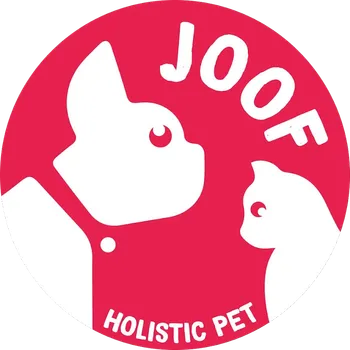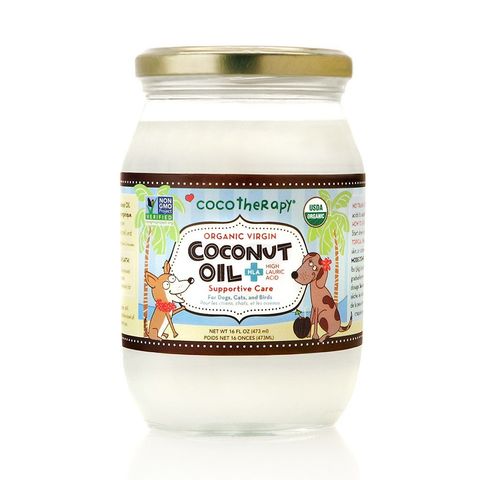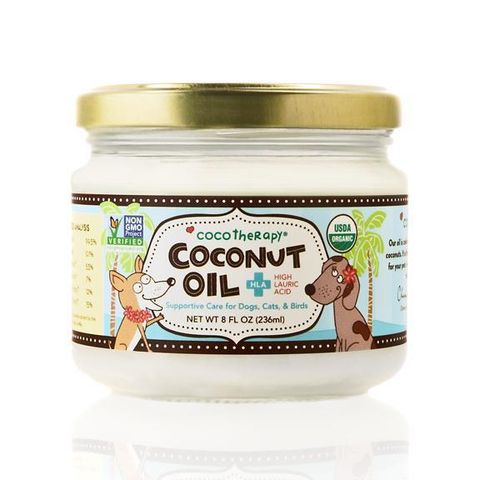
Recommended Article #03Feb24
Hi, Pet Parents Resources is a platform, where we share with you, what we research as pet parents ourselves. Here, we curate and give, what we hope would be, interesting to important informative articles, videos, and even podcasts from our brand creators, experts, researchers, and more all over the world, to aid you in making better choices for your pets.
This recommended article "Does Coconut Oil Cause Weight Gain?" is curated and sourced from CocoTherapy. If you loved this article, please do feel free to share it around.
Does Coconut Oil Cause Weight Gain?
Despite the numerous health benefits of coconut oil, many people are worried that it can contribute to weight gain. In today's post we'll take a look at why coconut oil is different from many other saturated fats. We'll also explain why it has gained a reputation as an effective weight loss aid.
If you've been reading the blog for a while, you'll know that coconut oil provides a wide range of health benefits for both pets and people.
Despite the numerous health benefits of coconut oil, many people are worried that it can contribute to weight gain. On the surface of it, this is a reasonable assumption to make. After all, coconut oil is a saturated fat. And too much saturated fat is bad for our health, right?
In today's post we'll take a look at why coconut oil is different from many other saturated fats. We'll also explain why it has gained a reputation as an effective weight loss aid.
Coconut Oil Is Rich in Medium-Chain Triglycerides
While we tend to think of all saturated fats as bad for us, the truth is not quite so simple.
Saturated fats are classified into two main categories: long-chain fats (long-chain triglycerides), and short and medium-chain fats (short-chain and medium-chain triglycerides).
Coconut oil is rich in medium-chain triglycerides (MCTs). These are metabolized differently by the body than long-chain triglycerides.
MCTs are digested faster than long-chain triglycerides. In fact, they are digested so quickly that they go directly to the liver where they are immediately mobilized to produce energy.
By comparison, long-chain triglycerides (LCTs) go into circulation where they are easily deposited into fat cells.
Coconut Oil Boosts Metabolism
The MCTs in coconut oil provide a quick and easy source of energy for the body. This helps boost metabolism and aids in weight management. In his book, Coconut Therapy for Pets, Dr. Bruce Fife, C.N., N.D., explains:
"After eating coconut oil, you (and your pet) get a boost of energy. This energy lift actually stimulates metabolism, kicking metabolism up into a higher gear. This effect lasts for a full 24 hours. During this time the body's engines are burning at a higher rate, so more calories are being burned off. At the end of the day, fewer calories are available to be stored as fat. Therefore, if excess calories are not consumed (i.e. not overeating), you and your pet can experience weight loss."
Coconut oil's ability to increase energy expenditure and aid weight loss has also been backed up in recent scientific literature.
Coconut Oil Suppresses Appetite
As well as providing a ready source of energy and boosting metabolism, coconut oil can actually suppress appetite. All fats slow down the emptying of the stomach, helping you feel full for longer, but studies have shown that MCTs have a greater satiating effect than LCTs.
The feeling of being full and satisfied means that you are less likely to consume excess calories between meals. And as any dieter knows, a combination of fewer calories consumed and more calories burned leads to weight loss.
Coconut Oil is Low in Calories
Coconut oil is lower in calories than you may imagine. In fact, it contains fewer calories than many other cooking oils. Here's a comparison of the calories in 10 commonly consumed oils:
*Calories in 1 tbsp (14ml) of oil. Source: Calories.info
Almond Oil: 123 cal
Canola Oil: 124 cal
Coconut Oil: 120 cal
Corn Oil: 120 cal
Flaxseed Oil: 124 cal
Grapeseed Oil: 124 cal
Olive Oil: 120 cal
Palm Oil: 123 cal
Sunflower Oil: 124 cal
Vegetable Oil: 120 cal
Final Words
Throughout this post we've demonstrated that far from causing weight gain, coconut oil can actually be an effective weight loss aid. And we think you'll agree, that's great news for pets and people!
To get the most out of coconut oil, please make sure to choose a high-quality oil such as CocoTherapy coconut oil. Our therapeutic-grade oil is 100% pure and natural, and can be shared and used by the whole family – both human and animal alike.
The good news is, you can purchase CocoTherapy Virgin Coconut Oil from our retailers today!
You may find more interesting reads from JOOF Holistic Pet today! Look out for loads of information on our product pages, social media, especially our Pet Parent Resources page.
JOOF Holistic Pet, a Singapore online pet store that focuses on the holistic well-being of your beloved furkid. Our recommended products aim to support and improve health, emotional and physical well-being, and help your pet have a better quality of life without compromise. Look out for Essential, Trendy and Premium quality pet products that are specially curated, with the pet parents concerns' as a priority.
This blog first appeared on the CocoTherapy website, where this article "Does Coconut Oil Cause Weight Gain?" was curated and sourced from.
Original source: https://www.cocotherapy.com/blogs/blog/does-coconut-oil-cause-weight-gain?
Thank you for reading! We hope to bring you more informative and exciting articles from other resources and our varying retail brands. Through them, we hope more and more pet parents could become their pet's wellness heroes, proactively taking control of their pets’ foundational health from within, with JOOF Holistic Pet - www.joofholisticpet.sg 😊
Disclaimer:
JOOF Holistic Pet has curated and reproduced this article in good faith, which may contain an element of consumer opinion, but cannot be held responsible for any information inaccuracies in it or any use assumed from this information by the reader. JOOF Holistic Pet welcomes positive recommendations for holistic healthcare products, but does not necessarily endorse the author’s opinion. We acknowledge each animal is an individual and may react differently to the highlighted product/s, and that there may also be other similar effective products available.
General recommendations made by JOOF Holistic Pet are solely for informational and educational purposes, and are not a substitute for the appropriate veterinary care. It is important to always consult professional help if you have concerns about your furkid’s health.


